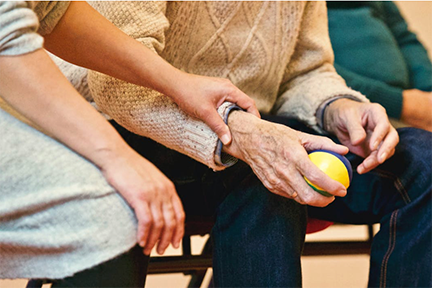
GUEST POST
Deciding to place your aging loved one in a professional care facility is often the most arduous decision families make. Ensuring your loved ones are taken care of while maintaining their health and sense of dignity is essential in their later stages of life. That is why understanding whether your loved one needs professional care is essential.
This article will provide a brief checklist to help you decide whether it's time for your loved one to be in a senior care community. Considering everyone has their needs and care preferences, this article covers the general signs to start your decision-making process.
Medication is Getting Expensive, And Cooperation is a Challenge
One clear sign that your loved one needs a professional is the difficulty of getting them to take their medications regularly. This is a red flag you can't ignore, as most elders either forget or refuse to take medications for personal reasons. Moving them to a senior care facility helps them maintain their medications through the watchful and guiding presence of a trained caretaker.
This gives you peace of mind that their medications are taken regularly and less stress convincing them. And speaking of medications, another good tip is to effectively bring down the costs of their medications so you can adjust your finances on their nursing bills. Check BuzzRx discounts on Metronidazole or other prescriptions as a start.
Repeated Falls or Injuries
Whether your elders live independently or with your family home, the issue of mobility and going around places becomes increasingly difficult as we get older. Even simple chores or tasks can injure older people despite having familiar care or assisted mobility equipment.
If your loved one has recently suffered from a fall or a history of several physical injuries, it might be best to consider a nursing home for 24/7 guidance from professionals. All nursing homes have accessibility features to help your loved one go around without the risk of injuries.
Overall, it is a safe space where your loved ones can move and go around safely. It would help if you regularly check your loved one's body for fresh bruises or injuries they may not notice.
Personal Hygiene Issues
Hygiene leads to good health, and inadequate hygiene indicates something is wrong with your loved one. Usual hygiene standards have become increasingly difficult to perform for elders. And just like medications, they too often forget or refuse to care for their hygiene.
We also understand that this topic is hard to discuss, as it can affect one's self-esteem, especially for older people. So to do this, if you smell or see that they are not as hygienic as before, ask them if they can still perform their bathing routines or if they find it hard to shower often.
It is not common for elders to admit to these struggles, so it takes an effort to discuss it with them and open up the possibility of having a professional help them. However, if you can help them open up on this topic, you allow a conversation that leads them to consider checking in a nursing home to improve their hygiene and overall health.
Increased Calls for Help
Have you noticed that your elders ask for help or need to be helped more often? Or seeing them in a confused or anxious state whenever they're alone or at night?
If yes, this could be a sign that they are not coping well at home and require 24/7 care from a professional. This sign is prevalent in patients with mental disorders like dementia, depression, or anxiety. They can disrupt family routines and put tension in the familiar relationship.
Depending on how severe their case is, sometimes the care of a younger relative is not enough for them. When this happens, it might be best to consider a nursing home to check in with their in-house doctors and create a mental treatment plan while living in a safe zone away from triggers in your home.
You Are Experiencing Burnout
We may not say this to our senior relatives, but sometimes, caring for them can be quite a handful, even when stressed out. While it's never their fault that we get stressed out taking care of them, this could mean we are on our limit.
It would be best to recognize your limits and stress when dealing with their needs. If taking care of them becomes too much of a work, then this could be an excellent chance to open up with a professional to take care of them.
Final Thoughts
Your elders deserve the best care, support, and attention in their last stages of life. Trained professionals come equipped with the best environment for their mental, physical, and psychological health.
As they experience this phase of their lives, a professional environment could give them the help they need and create an environment where they can still be themselves. Overall, we must be honest about whether turning into a nursing home is the best for our aging loved ones.
